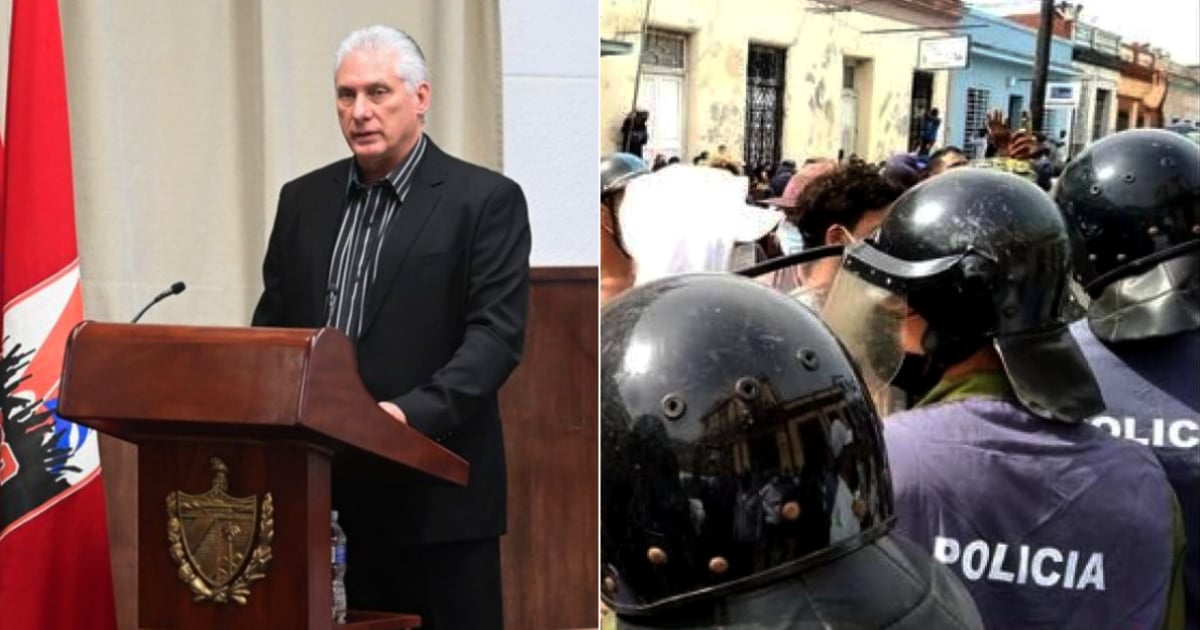The recent announcement by the Cuban regime, claiming that "the majority of Cubans support the Revolution," has sparked a wave of critical and sarcastic reactions on social media, following a report by CiberCuba. The so-called sociological study, presented by the Communist Party of Cuba (PCC), has been met with doubt and ridicule by citizens who question both its methodology and findings.
Voices from Daily Life
Social media users pointed out the low turnout at accountability meetings. "Most did not exceed 20% attendance," remarked one individual, describing nearly empty gatherings. Another echoed this sentiment, noting, "In my area, three CDR groups combined didn't even reach ten people."
Many online users claimed that attendees were present at these assemblies only out of fear of repercussions. "They go to keep up appearances and avoid PCC investigations," one user commented sarcastically, highlighting the ongoing social pressure that fails to rally a majority of Cubans to partake in the charade of supposed popular legitimacy.
Calls for Free Elections to Validate Study Claims
Numerous users have called for free elections as the only way to confirm the alleged popular support. "If they're so sure, why not hold elections without PCC control?" one reader asked. Another commented, "Most remain silent to protect their families."
There were demands for internationally supervised surveys and elections with democratic guarantees. "Allow the formation of other parties and free elections, then we'll see who truly has the support," a young person suggested.
Protest Through Memes and Sarcasm
The comments were also filled with irony. "Did they conduct the study at a PCC school or the National Assembly?"; "They should have done it in a gas line to see the response," some said.
Comparisons were drawn to similar authoritarian systems. "This is like voting in Venezuela, pure fiction"; "The first referendum is not showing up to vote or attend political events," they stated.
More Critical and Insightful Comments
Here is a selection of the more significant and critical comments:
"Allow the creation of other parties and free elections, then we'll see who truly has the support."
"This is like voting in Venezuela, pure fiction. They know they'd lose badly in free elections."
"Cubans are no different from other people who have lived under dictatorships. Everyone wants freedom."
"It's an imposed regime; we survive by staying silent to protect our loved ones."
"When, where, and with whom did they conduct that study? Many of us would have loved to participate."
"It's simple, if they're confident the majority supports them, hold free elections and see the truth of that claim."
"Indeed, the rulers of Cuba do whatever they please."
"If you say you don't support it, they imprison you like a criminal."
"We support the revolution, but the one in the dictionary, not the one that's been destroying everything for 65 years."
"They should hold a referendum to see the truth."
"They should survey the population to see how many of us are really left."
"There's no president more entertaining than ours. He makes jokes that make you die laughing."
"If they're so confident, hold a plebiscite with all the guarantees."
"The youth don't stay here because everyone wants to leave."
"When a people emigrate, what remains is their government."
Understanding the Cuban Public's Reaction to the PCC Study
Why are Cubans skeptical about the PCC's study on Revolution support?
Many Cubans doubt the study's credibility due to questionable methodology and their own experiences of low attendance at political gatherings, suggesting that the claimed support is not genuine.
What do Cubans suggest as a way to verify the study's claims?
Cubans propose holding free elections, supervised internationally, without the control of the PCC, to truly measure the public's support for the regime.
How do Cubans express their skepticism towards the study?
Cubans often use sarcasm and humor, such as memes, to mock the study, drawing parallels to other authoritarian regimes and questioning the study's legitimacy in various public forums.
